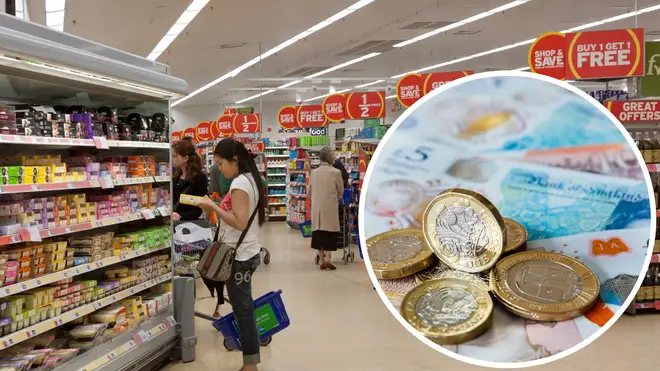
Iain Dale 7pm - 10pm
2 March 2022, 00:02

Retail prices rose in February at their fastest rate in over a decade, figures show as the UK battles with the soaring cost of living.
Shop price annual inflation accelerated to 1.8% in February, up from 1.5% in January - the highest rate of inflation since November 2011, according to the BRC-NielsenIQ Shop Price Index.
Food inflation remained the key driver behind higher prices, particularly for fresh food, which has been impacted by poor harvests, both in the UK and globally.
British Retail Consortium chief executive Helen Dickinson said: "Price rises will be unwelcome news for households who already face falling disposable income because of the rise in national insurance and energy price caps.
"Retailers continue to face cost pressures from higher shipping rates, with crude oil prices having almost doubled over the last year. Other pressures include labour shortages, commodity price increases, and rising energy prices.
Read more: Britain's 'most wanted' woman arrested in Spain after a decade at large
Read more: Teenage girl seriously injured in 'shocking' Liverpool shooting

Boris Johnson on cost of living crisis
"Retailers are going to great lengths to mitigate against these price rises and support their customers, for example many supermarkets have expanded their value ranges for food. Unfortunately, there are limits to the costs that retailers can absorb."
Meanwhile, the increase from last month was the result of rising prices for non-food products, particularly health, beauty and furniture.
Non-food inflation accelerated to 1.3% in February, up from 0.9% in January, its highest rate since September 2011.
Food inflation remained unchanged at 2.7% in February but remains above the 12 and six-month average price growth rates of 0.7% and 1.6% respectively and is at its highest rate since September 2013.
Mike Watkins, head of retailer and business insight at NielsenIQ, said: "Inflation has increased since the start of the year and the underlying trend in shop prices will be upwards over the next few months.
Read more: Diplomats astonishing walk-out during speech by Russian foreign minister Sergei Lavrov
Read more: Attack on Kyiv: Five people killed after TV Tower struck by Russian missile

Carer details extent of cost of living crisis
"With falling disposable income for most households, retailers will need to keep encouraging customers to spend by offering choice and value and, for some, discounts as well as added benefits for loyal shoppers."
It comes as average fuel prices reached the highest level on record following Russia's invasion of Ukraine.
The Department for Business, Energy and Industrial Strategy said the average price of a litre of petrol at UK forecourts on Monday was 149.22p.
That is up from 147.77p a week earlier. A litre of diesel rose from 151.95p to 153.36p over the same period.
Oil prices have calmed after reaching an eight-year high last week due to concerns over the reliability of supplies after Russian troops entered Ukraine.
Chancellor Rishi Sunak recently unveiled support for Brits to deal with the upcoming increase to the energy price cap - which is predicted to rise again in October.
Mr Sunak's support package to help people with eye-watering hikes in their energy bills was announced on Thursday.
The package includes: A one-off £200 discount on bills, a £150 council tax rebate for those with properties in bands A-D and a discretionary fund of £150 million for local authorities to "help those lower income households" who may live in higher council tax properties, or who are exempt altogether.
Mr Sunak said at a Downing Street conference: "I know this is probably the number one issue on most families' minds, you know - they're looking at the news, they're seeing prices go up, they're worried about the cost of living, and in particular energy, and that's why we're taking action, and I really believe that what we're doing, £350, it's a significant amount of money that will make a big difference to the vast majority of households, and I think people, I hope actually, will be reassured by us stepping in to provide that support to ease the adjustment that this is."